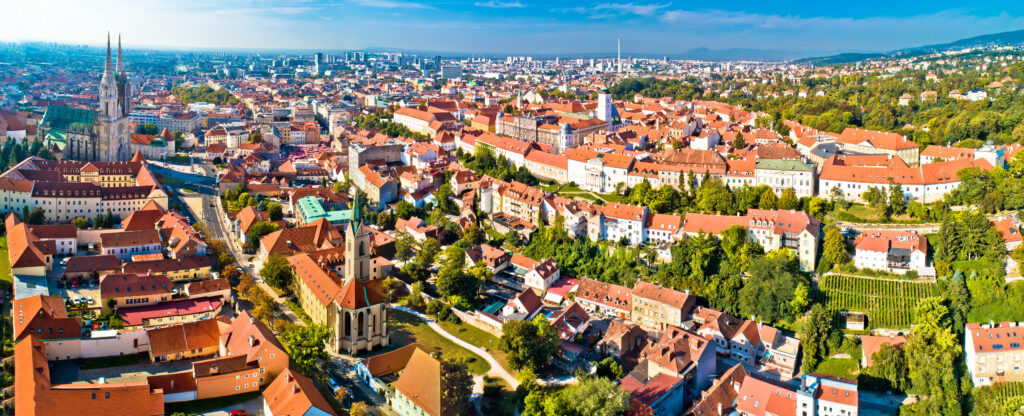In recent years, prices in Croatia have been continuously rising, including property and rental prices. While older generations who already own property may not feel the direct impact, younger people who are just finishing school or university and entering the job market face serious housing challenges. The current affordable housing policy is not sufficiently developed. But what does affordable housing actually mean? Affordable housing refers to properties intended for young people as well as essential workforce sectors, where rent is significantly lower than standard rental prices (not exceeding 30% of income), and purchase prices are considerably more favorable compared to market rates.
Croatia and the EU: Causes of the Problem
According to Eurostat data, young people in the European Union leave their parental home at an average age of 26.3 years. However, this average varies significantly across EU countries. The highest average age, 31.8, is recorded in Croatia, while Finns leave home the earliest, at just 21.4 years. The real estate market, especially in coastal areas, presents a major issue. Rent often takes up more than 50% of an individual’s salary, and long-term rentals are frequently unavailable—landlords evict tenants as early as May to rent out properties to tourists during the summer for higher profits. During the summer months, long-term rental properties are virtually nonexistent. Purchasing a property is also unattainable for the average Croatian citizen. Property prices are adjusted for foreign buyers—there are hardly any listings below €150,000, while the average net salary in Croatia is only €1,366. Foreigners, with salaries often four or five times higher, can easily afford properties at these prices, while Croatians are left with no real options for financial independence through homeownership.
Property Tax: An Insufficient Measure
At the end of 2024, the Croatian government introduced a tax on vacant properties and those used for short-term rentals to encourage long-term renting. However, the tax is too low to have a significant effect. It is set at an annual rate of €0.60 to €8.00 per square meter (determined by municipalities/cities). For example, a 70 m² apartment rented out for three months during peak season at €100 per night would generate a total tax of €560 per year (70×8=560). This amount can be earned in just six days, meaning it does not serve as an effective incentive for landlords to switch to long-term rentals. Additionally, the proposed measure to refund 50% of property transfer tax for young first-time buyers does not solve the issue, as property prices remain too high and young people generally have very low creditworthiness. Entry-level salaries for young workers are typically low due to their lack of experience and professional progression, which limits their ability to secure loans.
Potential Solutions
Since this is a highly complex issue requiring long-term solutions, systematic changes are necessary. The following measures are proposed:
- Special Taxation for the Wealthiest
Croatia has virtually no wealth or luxury tax. Introducing a net wealth tax targeting the top 1% of the richest individuals—covering properties, bank savings, business ownership, etc.—would ensure that only the truly wealthy are taxed, unlike the general property tax. Many Croatians own property due to the legacy of socialism and state-owned housing, so taxation should focus solely on the wealthiest. - Construction of Affordable Housing
Using funds collected through wealth taxation and EU programs (such as the European Regional Development Fund or the National Recovery and Resilience Plan), the government should build affordable housing (POS apartments) with significantly lower prices than the market rate. These units would be intended primarily for young people residing in Croatia. Additionally, state and municipal rental apartments should be built with rent capped at 30% of income. To prevent speculation, POS apartment owners should be required to pay the full market price if they choose to sell their unit. - Restricting Property Purchases by Foreigners
In the last decade, foreign buyers have acquired over 80,000 properties in Croatia. To limit this, Croatia could adopt regulations similar to Malta—requiring individuals without at least five years of residency in Croatia to seek approval before purchasing property. - Regulating Rentals and Preventing Overcrowding
A rental regulation law should be introduced to enforce minimum living standards, such as ensuring that each tenant has at least 13 m² of space. This would prevent landlords from overcrowding apartments with foreign workers, a common practice where small rooms are rented out with six or seven persons. This leads to inhumane living conditions and further increases rental prices.
Conclusion
The housing crisis in Croatia is a deeply complex issue that cannot be solved with a single measure. A combination of solutions is needed—a fairer tax system, increased construction of affordable housing, restrictions on foreign buyers, and stricter rental regulations. Additionally, monitoring and enforcement of these policies are essential. Only then can young people in Croatia have a realistic opportunity for housing independence.
Sources used:
https://www.index.hr/vijesti/clanak/objavljena-nova-prosjecna-placa-u-hrvatskoj/2634854.aspx
https://gov.hr/hr/porez-na-promet-nekretnina/1464?lang=hr
https://www.porezna-uprava.hr/Gradani/Stranice/Nekretnine/Porez-na-nekretnine-vodic.aspx
https://franksalt.com.mt/foreign-buyers/faqs-property-and-residency-in-malta/








